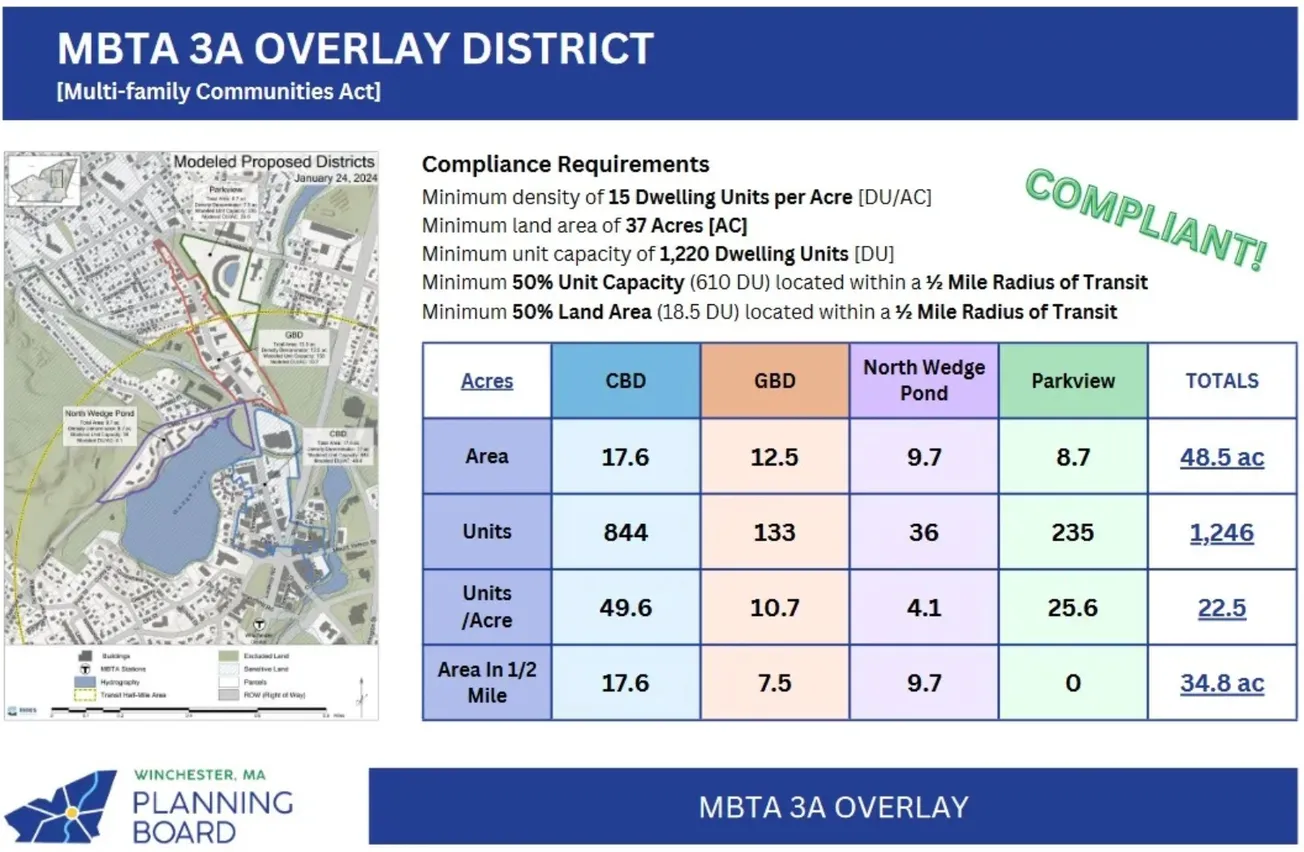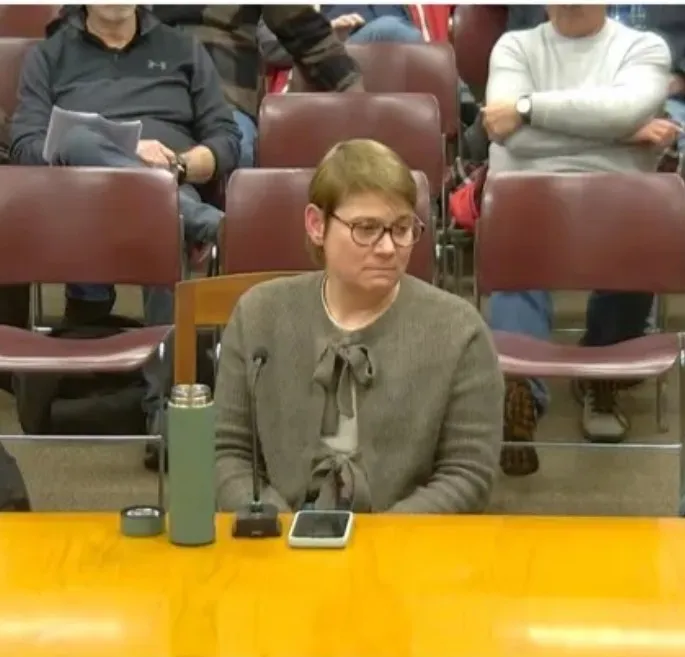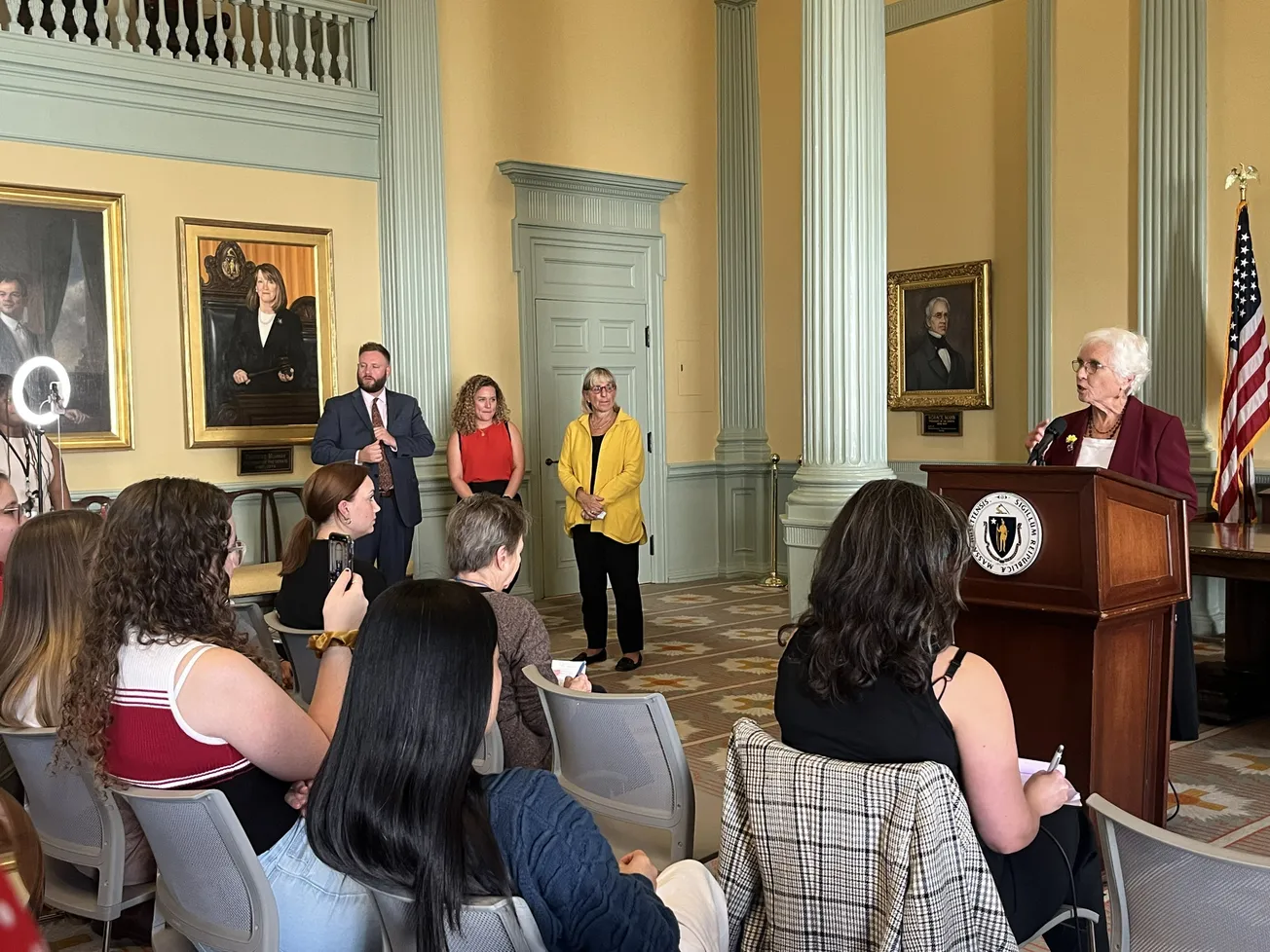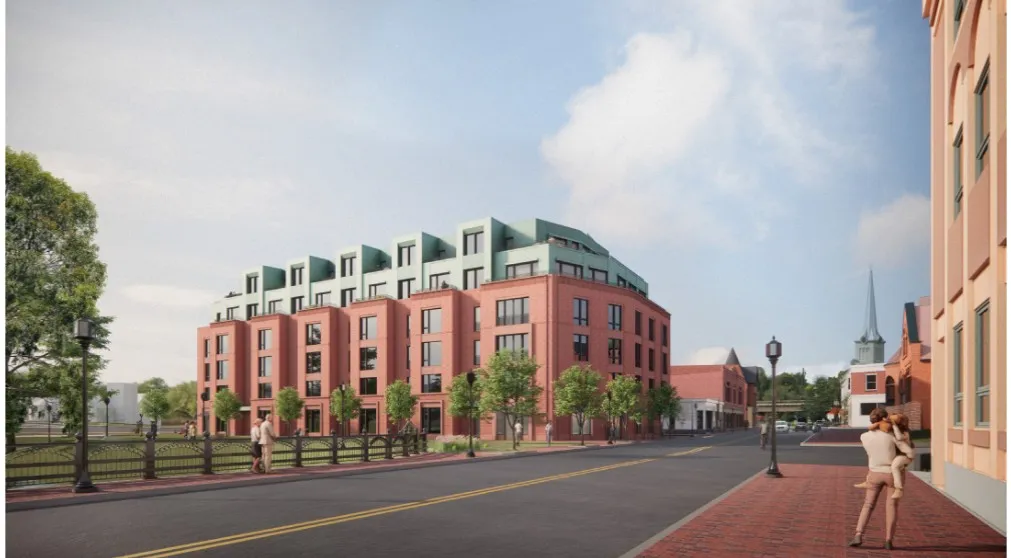Table of Contents
Town Meeting members will vote on an amendment to the town’s MBTA Overlay District that would bring affordable housing standards in line with the rest of Winchester while maintaining state compliance.
Article 4, proposed by the Planning Board, would update the MBTA Overlay District — a zoning area that allows multifamily housing near public transit. The change would align the overlay’s affordable housing rules with those already in place with the two underlying zoning districts, the Center Business District and the Main Street Mixed-Use District.
Under the current MBTA overlay rules, projects of 10 units or more must designate 10% of their homes as affordable. When that 10% results in a decimal, the number is rounded down.
“So by example, if you have 19 units, you're developing 10% of 19, [affordable housing would] be 1.9 units, and that would round down to one unit,” said Planning Board Chair Brian Vernaglia.
Article 4 would change the rounding method so that any fractional unit rounds up instead. So 1.9 units would round up to 2 affordable units. The proposal also lowers the threshold for when affordable housing requirements apply, from 10 units to six, again aligning it with neighboring districts.
The MBTA Communities Act, a state law passed in 2021, requires towns with access to MBTA service to create zones that allow multifamily housing near public transit. Winchester approved its overlay district in spring 2024, covering about 48 acres within a half-mile of the town’s MBTA station.
The town in August 2024 received a letter from the Attorney General’s Office confirming Winchester’s overlay district as being in compliance.
Both the Executive Office of Housing and Livable Communities and the Massachusetts Attorney General’s Office have confirmed that if the amendment passes, Winchester will remain in full compliance with the state law, Vernaglia said.
“A fairly simple amendment to our compliance,” said Town Planner Taylor Herman.
Herman said one of the original requirements for the compliance was to submit an economic feasibility analysis, completed in June 2025. The study cost $7,500, out of the $15,000 allocated at a prior Town Meeting. The town had to work with an outside consultant to prove to the state what the inclusionary housing number could be.
I-ching Scott, a Winchester resident and member of the Housing Partnership Board, said Article 4 balances adding affordable units to meet SHI goals with requirements that are reasonable for developers.
“My concern as a resident of Winchester is that long-term folks cannot afford to move into something within town,” Scott said. “So encouraging development near town would be great for those right-sizing.”
The change could help Winchester move closer to its state-mandated goal of having 10% of its housing stock qualify as affordable, Scott said.
“We’re just a little bit shy of 5% right now, and we just really backlogged getting that going,” she said
Vernaglia said the zoning will not change that number substantially and that the proposal has faced little pushback.
“This is a very small change,” he said. “We’ve received unanimous favorable action from the Select Board, the Housing Partnership Board, and the Affordable Housing Trust in favor of this article.”
While the original MBTA zoning law was “challenging and controversial” statewide, Herman said, this amendment simply fine-tunes what Winchester already passed.
“The biggest thing is that it doesn’t disrupt our compliance,” he said. “It just makes our rules consistent.”
If approved, the amendment will go to the Attorney General’s Office for review before being added to the town’s bylaws.
For residents like Scott, that would mark progress — not a dramatic shift, but a meaningful one.
“It’s a really positive step for our town,” she said. “I hope Town Meeting members will vote yes.”
Aayushi Datta is a journalism student at Boston University. This story is part of a partnership between Winchester News and the Boston University Department of Journalism.







